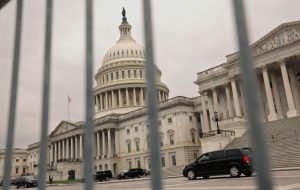The restoration of Greece’s credit rating to investment grade marks the culmination of a long and painful process of economic adjustment and reforms and reflects market confidence in the nation’s economic outlook.
This significant development heralds a reduction in the cost of borrowing for the Greek government, and by extension the private sector, which will both widen the investment base and attract new capital to the country’s economy. At the same time, Greek bonds have again become eligible as collateral within the Eurosystem’s permanent monetary policy framework, allowing Greek banks to access liquidity under more favorable terms.
Greek GDP is expected to grow as a result, and an expected increase in investment should render the economy more resilient. The higher rating will also facilitate better management of Greece’s high public debt; it will also strengthen the banking system, ushering in a further improvement in the Greek economy’s mid-term outlook.
Nonetheless, the current environment of high inflation, rising interest rates, geopolitical tensions and growing uncertainty is both complex and challenging. Despite the progress made, the current situation and remaining weaknesses of the Greek economy therefore make it imperative both to retain a prudent fiscal policy with primary, cyclically-adjusted surpluses of around 2 percent of GDP, and to press on with the program of far-reaching reforms.
Vigilance is also necessary with regard to financial stability, as risks remain high due to the impact of weaker economic growth and high interest rates on the ability of businesses and households to repay loans.
The Greek economy is still characterized by a persistent and high current account deficit, reflecting its low structural competitiveness, a dependence on imports and a low rate of savings.
At the same time, unemployment remains high in the country and labor force participation low, with a discrepancy between the demand for and supply of skilled staff. There are also standing obstacles to economic growth, including inefficient public administration, the slow delivery of court rulings and a business environment which, despite significant progress in recent years, is still not conducive to attracting productive investments.
Furthermore, climate change and rapid technological progress have emerged as the primary challenges of our era.
The Greek economy can deal with these challenges through productive investments aimed at upgrading structures and human resources, thereby exploiting its available resources and acquiring easier access to liquidity.
The absorption of European funds, especially via the Recovery and Resilience Facility whose disbursements are linked to investments and reforms, is essential if Greece is to maintain and expand the benefits stemming from its investment grade listing.
Christina Papaconstantinou is the Deputy Governor of the Bank of Greece (BoG).


